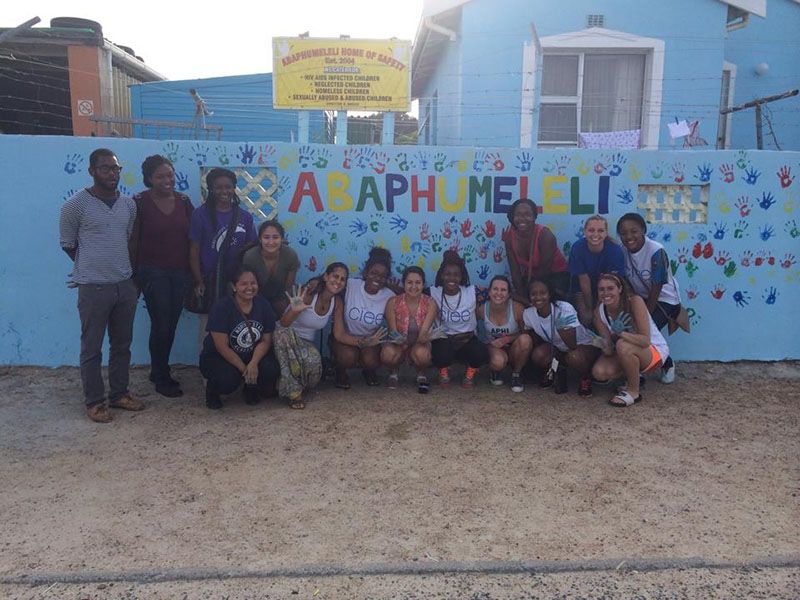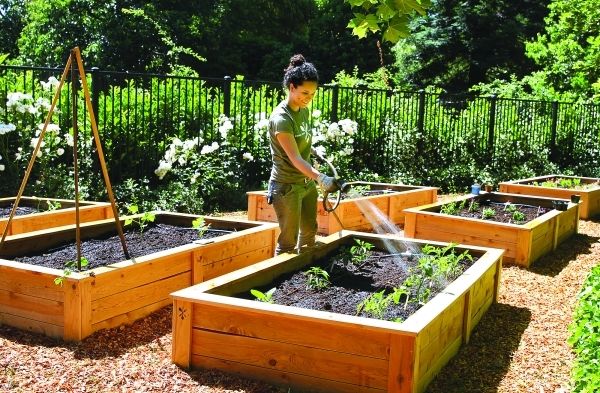Alumni Voices: 6 Ways to Build a Global Network Abroad
Stephen Szypulski is a CIEE alumnus who studied abroad at the Warsaw School of Economics in Poland during the spring of 2011, while an undergraduate at Georgetown University. He recently graduated from Columbia University’s Harriman Institute, where he concentrated on Russian and East European studies, and previously was a Fulbright scholar in Poland from 2012-2013.
After a weeklong scholarship trip to Poland during my sophomore year at Georgetown, I knew immediately that I wanted to return again, this time for a semester the following year. As it turned out, my semester with CIEE in Warsaw was only the beginning of my travels to the region, and I credit my time spent with the group as having contributed to my decision to become a Russia and East Europe regional specialist.
In addition to the typical benefits of studying or working abroad—that is, making friends from around the world and spending my free time visiting cities with such rich histories—I also found my times spent abroad to be ideal opportunities for building my network as a young professional and global citizen interested in foreign affairs.
For those still deciding what their next international study or research destination will be, or for students who already have their departure date scheduled, here are a few tips that I found useful for expanding my own network abroad and how you can as well:
1. Be willing to step outside of your comfort zone
Though I had significant international travel experience before my semester abroad in Warsaw, I still had to adapt to my new city, meet new people, and learn the daily workings and hotspots of locals. To do this, you need to step out of your previous routine and away from the assumption that ways of doing things at home will also apply in your new city. You’re only abroad in this new culture for a set period of time, so make each moment count and spend it like a local.
2. Volunteer or intern
CIEE Study Abroad Cape Town alum Chris Grava co-founded a nonprofit in the South African community of Khayelitsha after his time abroad.
Study abroad programs have a funny way of socializing you to spend the majority of your program with the group you arrived with. My 2011 CIEE group was a great bunch of people; we spent a lot of time together, and are still in touch to this day. But, your new country and city is filled with amazing people with their own inspiring stories. Go meet them! One way is by volunteering with a local NGO. Introduce yourself prior to arriving and show an interest in offering your time. Chances are, they would love to have you visit even for an hour a week and, in the end, you will have met more locals, learned about your city, and added something to your resume to stand out to future employers—all for a worthy cause.
3. Leverage your home network, school alumni database, and professors.
No matter how distant your new home is from the US, there are tons of groups and individuals abroad that can serve as a resource to build your network abroad. The country’s embassy and consulate, American Corners, American Chambers of Commerce, or the American Studies departments at universities are just a few of those places you can reach out to. Find alumni from your school now living abroad or ask for contacts of your professors; a shared background makes it easier to reach out and gives you a good conversation starter. More likely than not, mutual connections are happy to help you build your own in-country network or acclimate to the city.
4. Cold call or message people in your field of study or profession
CIEE Study Abroad in Thailand alum Kamila Lambert reached out to another CIEE in her pursuit of social entrepreneurship and urban farming.
Is there a business or civic leader you read about or an academic specialist you studied in your classes that you always wanted to meet? Did you read a really interesting magazine interview featuring them? Do you want to work in the same field as certain individuals in the future? Reach out and set up a coffee. Of course, be brief, respect their time, and have a real connection that validates your intent to meet up. You will be surprised at the positive responses that result from being proactive and reaching out.
5. Start an initiative or event
You may not be there for a long time, but that doesn’t mean you can’t leave a footprint on your program, group, or host country’s local community. Work with a school or environmental group to organize a park cleanup, work with a school to organize an “America Day”, food potluck, or other cultural event to share your own interests with the community. As with volunteering or interning, building a global network is easiest when you share interests and show a willingness to contribute to your temporary home abroad.
6. Don’t let the end of your program mean the end of your network
CIEE Study Abroad Warsaw alum Stephen Szypulski speaking with students at a high school in Radom, Poland during his Fulbright year in Poland.
Independent of whether you spent a semester abroad or a full year on a Fulbright, make sure that you keep in touch with new friends, professors, and professional contacts long after you’ve left. The availability of social platforms means there’s no excuse for not following up with an occasional email, asking a study abroad professor for a recommendation in the future, or reaching out when you’re both in the same town again. Use your contacts as a resource going forward and be willing to offer to return the favors in exchange.
If you use your limited time abroad smartly, your experiences and growing network will benefit endlessly.
Want to read more articles written by CIEE alumni? Check out all of our Alumni Voices posts.



